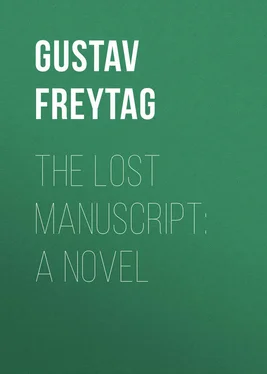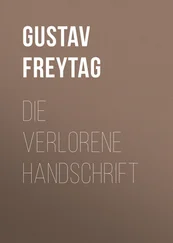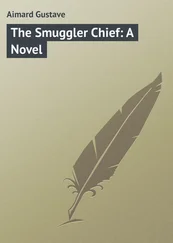Gustav Freytag - The Lost Manuscript - A Novel
Здесь есть возможность читать онлайн «Gustav Freytag - The Lost Manuscript - A Novel» — ознакомительный отрывок электронной книги совершенно бесплатно, а после прочтения отрывка купить полную версию. В некоторых случаях можно слушать аудио, скачать через торрент в формате fb2 и присутствует краткое содержание. Жанр: foreign_antique, foreign_prose, на английском языке. Описание произведения, (предисловие) а так же отзывы посетителей доступны на портале библиотеки ЛибКат.
- Название:The Lost Manuscript: A Novel
- Автор:
- Жанр:
- Год:неизвестен
- ISBN:нет данных
- Рейтинг книги:5 / 5. Голосов: 1
-
Избранное:Добавить в избранное
- Отзывы:
-
Ваша оценка:
- 100
- 1
- 2
- 3
- 4
- 5
The Lost Manuscript: A Novel: краткое содержание, описание и аннотация
Предлагаем к чтению аннотацию, описание, краткое содержание или предисловие (зависит от того, что написал сам автор книги «The Lost Manuscript: A Novel»). Если вы не нашли необходимую информацию о книге — напишите в комментариях, мы постараемся отыскать её.
The Lost Manuscript: A Novel — читать онлайн ознакомительный отрывок
Ниже представлен текст книги, разбитый по страницам. Система сохранения места последней прочитанной страницы, позволяет с удобством читать онлайн бесплатно книгу «The Lost Manuscript: A Novel», без необходимости каждый раз заново искать на чём Вы остановились. Поставьте закладку, и сможете в любой момент перейти на страницу, на которой закончили чтение.
Интервал:
Закладка:
But it was not learning alone. When she looked up at him, she saw beaming eyes, a kindly expression about the eloquent lips, and she felt herself irresistibly attracted by the warmth of the man's nature. Then she sat opposite to him as a quiet listener. But when she entered her room, she knelt down and covered her face with her hands. In this solitude she saw him before her and offered him homage.
Thus she awoke to a new life. It was a state of pure enthusiasm, of unselfish rapture, such as a man knows not and only a woman can experience, – which comes only to a pure, innocent heart when the greatest crisis of earthly existence visits a sensitive soul in the bloom of life.
She saw also that her father was partially under the same magical influence. At dinner, which used to be so silent, conversation now flowed as from a living spring; in the evening, when formerly he used to sit wearily over the newspaper, many things were now discussed, and there were frequent disputes which lasted late into the night. Her father, when he took his bedroom candle from the table, was always in cheerful humor; and more than once he repeated to himself, pacing up and down, sentences that had been uttered by his guest. "He is, in his way, a fine man," he said; "in all things stable and sound; one always knows how to take him."
Occasionally she was alarmed at the Professor's opinions. The two friends, indeed, avoided what might wound the deep faith of their gentle hearer, but in the conversation of the Professor there sometimes seemed to lie hidden a different conception of venerated doctrines and of human duties; and yet, what he maintained was so noble and good that she could not guard herself against it by her own reasoning.
He was often vehement in his expressions; when he condemned a thing he did it in forcible language, and sometimes became so vehement that the Doctor and even her father withdrew from the contest. She thought then that he was different from almost all men-prouder, nobler, and more decided. When he expected much of others, as is natural to one who has lived in closer intercourse with the ideal world than with real life, it alarmed her to think in what light she must appear to him. But, on the other hand, this same man was ready to acknowledge everything that was good, and he rejoiced like a child when he learned that any one had shown himself brave and energetic.
He was a serious man, and yet he had become a favorite with the children, even more than the Doctor. They confided their little secrets to him, he visited them in their nursery, and gave them advice according to his youthful recollections, as to how they should make a large paper kite; he himself painted the eyes and the mustache, and cut the tassels for the tail. It was a joyful day when the kite rose from the stubble-field for the first time. Then, when evening came, he sat down, surrounded by the children, like the partridge amongst her young. Franz climbed up the arm-chair and played with his hair; one of the bigger ones sat on each knee. Then riddles were propounded and stories told. And when Ilse heard how he repeated and taught small rhymes to the children, her heart swelled with joy that such a mind should hold such intimate intercourse with simple children. And she watched his countenance and saw a child-like expression light up the features of the man, laughing and happy; and she imagined him as a little boy, sitting on his mother's lap. Happy mother!
Then came the hour among the sheaves, the learned discourse which began with Tacitus and ended with a silent acknowledgment of love. The blessed cheerfulness of his countenance, the trembling sound of his voice, had torn away the veil that concealed her own agitated feelings. She now knew that she loved him deeply and eternally, and she had a conviction that he felt just as she did. He, who was so greatly her superior, had condescended to her; she had felt his warm breath and the quick pressure of his hand. As she passed through the field, a glow suffused her cheeks; the earth and heaven, fields and sun-lit wood, floated before her like luminous clouds. With winged feet she hastened down into the woody plain, where the foliage enveloped her. Now she felt herself alone. She unconsciously grasped a slender birch tree, which shook beneath her convulsive grasp, until its leaves fell in a shower around her. She raised her hands to the golden light of the heavens and threw herself down on the mossy ground. Her bosom heaved and panted violently and she trembled with inward excitement. Love had descended from heaven upon the young woman, taking possession of her body and soul with its irresistible power.
Thus she lay a long time. Butterflies played about her hair. A little lizard crept over her hand. The white tips of the wild flowers and the branches of the hazel bent over her, as if these little children of nature wished to veil the deep emotions of the sister who had come to them in the happiest moment of her life.
At last she rose upon her knees, clasped her hands together, and thanked and prayed to God for him.
She became more collected and went into the open valley, no longer the quiet girl she was formerly. Her own life and what surrounded her shone in new colors, and she viewed the world with new feelings. She understood the language of the pair of swallows that circled round her, and with twittering tones passed by her swift as arrows. It was the rapturous joy of life which impelled the little bodies so swiftly through the air, and the birds greeted her with a sisterly song of jubilee. She answered the greeting of the laborers who were going home from the fields, and she looked at one of the women who had been binding the sheaves, and knew exactly what was the state of her feelings. This woman also had, as a maiden, loved a strange lad; it had been a long and unhappy attachment, attended by much sorrow; but now she was comforted going with him to her home, and when she spoke to her mistress she looked proudly on her companion, and Ilse felt how happy was the poor weary woman. When Ilse entered the farm-yard, and heard the voices of the maids who had waited for her in vain, and the impatient lowing of the cattle, which sounded like a reproach on the loitering mistress, she shook her head gently, as if the admonition was no longer for her, but for another.
When she again passed from the farm buildings into the golden evening light, with fleet steps and elevated head, she perceived with astonishment her father standing by his horse ready to mount, and with him, in quiet conversation, the Doctor, and he whom at this moment she felt a difficulty in encountering. She approached hesitatingly.
"Where have you been lingering. Ilse?" cried the Proprietor. "I must be off," and looking at the agitated countenance of his daughter, he added: "It is nothing of importance. A letter from the invalid forester calls me to his house. One of the Court people has arrived, and I can guess what is wanted of me. I hope to be back at night."
He nodded to the Doctor. "We shall see each other again before your departure."
So saying, he trotted away, and Ilse was thankful in her heart for the incident which made it easier for her to speak with composure to the friends. She walked with them on the road along which her father had ridden, and endeavored to conceal her disquiet by talking on indifferent subjects. She spoke of the hunting castle in the wood, and of the solitude in which the gray-headed forester dwelt among the beech-trees of the forest. But the conversation did not flow; each of those noble hearts was powerfully touched. The Professor and Ilse avoided looking at each other, and the friend could not succeed, by jocose talk, in drawing the lovers down to the small things of life.
Ilse suddenly pointed with her hand to a narrow pass on one side, from which many dark heads were emerging.
Читать дальшеИнтервал:
Закладка:
Похожие книги на «The Lost Manuscript: A Novel»
Представляем Вашему вниманию похожие книги на «The Lost Manuscript: A Novel» списком для выбора. Мы отобрали схожую по названию и смыслу литературу в надежде предоставить читателям больше вариантов отыскать новые, интересные, ещё непрочитанные произведения.
Обсуждение, отзывы о книге «The Lost Manuscript: A Novel» и просто собственные мнения читателей. Оставьте ваши комментарии, напишите, что Вы думаете о произведении, его смысле или главных героях. Укажите что конкретно понравилось, а что нет, и почему Вы так считаете.












